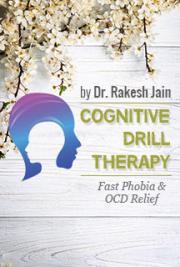PART VI
SOCIAL
RULES
280 | P a g e Affinities of Life
Every day we come into contact with real live human beings— at work, commuting, in shops, out and about—people we might have met before or often complete strangers. The world is full of people with whom we interact. Those interactions, small or large, can be life-affirming or deeply unpleasant. So, what follows are a few social Rules. These aren’t set in stone. They aren’t a revelation. They are a reminder.
We will look at some Rules for dealing with people at work. After all, that’s where we spend an awful lot of our time, and anything we can do to make our career more successful and our working life happier, more satisfying and productive, and most of all enjoyable, surely can’t be a bad thing?
Social Rules are the fourth circle we draw around ourselves. (The first is self, the second is partner, the third is family and friends, and the fourth is social relationships.) It’s terribly easy to see our own group, social class, or any level of community as the right one, the important one, the better-than-yours one. But each community sees itself as that.
How much better to draw that fourth circle around ourselves so that it includes people from other backgrounds, other ethnicities, other communities, so that we feel part of the big community, the human one. It is better to include more than to exclude even one. And it is very easy to exclude for whatever reason, to assume that it is a “them” and “us”
situation, when actually we are all “them,” we are all “us.”
We have to treat everyone with respect, or what’s it all about? We have to care about everyone, or the whole thing falls apart. We have to help each other no matter who they are, because if we don’t there won’t be anyone to help us when we need it. We have to be the first to put our hand out. Why? Because we are Rules Players.
281 | P a g e Affinities of Life
RULE 87
We're All Closer Than You Think
I have a friend. Not a good friend particularly, more of an acquaintance. He’s a regular sort of a guy. Runs a computer business.
Has a family. Normal, regular, 9 to 5, straight, nothing unusual about him. Or so he thought.
He is English, born and bred. He used to have a bit of a rant about immigration. Went on a bit about numbers, but you always felt it was a bit deeper than that. He found out not long back that he was actually adopted. Nothing wrong with that— plenty are—but it set him to tracing his family. Yep, you’ve guessed it. His father was a foreigner.* Now you wouldn’t know it to look at the man, but he’s only half as English as he thought he was. Interesting.
If you trace back anyone’s history, it’s going to throw up a lot of different bits from different communities and ethnic groupings. None of us is in any way “pure.” The whole thing has been melted, shaken and stirred, and blended until any one of us would be hard-pressed to swear where we originated. Go back far enough, and we all contain something a bit different. Apparently half of all European males carry a line that can be traced back to Genghis Khan—and he came from Mongolia.
My point? Don’t judge others, because we are all human, all drawn from the same melting pot. We are all related if you go back far enough. There is no difference. We have to accept other communities, other cultures even if they are very different from ours because the difference between us is so very little when you wipe away the veneer we all wear.
That’s his word, by the way, not mine.
282 | P a g e Affinities of Life


RULE 87
Yes, we may wear different clothes and speak different languages and have different customs, but we all fall in love, all want someone to hold and hug, to have a family, to be happy and successful, not to be afraid of the dark, to live a long time, die a good death, to be attractive and not to get fat, old, or sick. What does it matter if we wear a suit, a sari, or a grass skirt if deep down we all cry when we are hurt, we laugh when we are joyful, and our stomachs rumble when we are hungry?
The veneer can be wiped away in a second, and then we are all the same, all quite lovely and quite, quite human.
THE DIFFERENCE BETWEEN US IS
SO VERY LITTLE WHEN YOU WIPE
AWAY THE VENEER WE ALL WEAR.
283 | P a g e Affinities of Life
RULE 88
It Doesn’t Hurt to Forgive
It’s easy to be angry. It’s easy to get riled up and mutter or to make rude gestures and swear. It isn’t so easy to be forgiving. And I’m not talking about turning the other cheek here or any of that stuff. I’m talking about seeing it from the other person’s point of view. And being forgiving.
I had an incident recently on vacation that basically involved a very wet cyclist mouthing off because he thought someone (no, it wasn’t me) had driven too close to him and nearly forced him into a ditch. He was loud, rude, aggressive, out of order, and foul-mouthed. 1 tried to speak to him reasonably on behalf of the person he was being abusive to, and he gave me a mouthful as well. Then he rode off and shook his fist at me, which made his bicycle wobble and inside I laughed, a lot. I found it easy to forgive him not in any religious sense but because I could see he had chosen the wrong vacation.
He had obviously been persuaded that the cycling vacation would be fun, but it was in hilly, really hilly, countryside, and it had rained all that day. He was tired, wet, aching, and very unhappy. How could I not forgive him? If I had foolishly chosen that vacation, I too would have been grumpy, ready for a fight, fed up, touchy, and raw. I felt quite sorry for him and could sense a great deal of his unhappiness. Yes, he was in the wrong to use such foul language—especially in front of children. Yes, he was ready for a fight and intimidating and aggressive. But he was also me or you or anyone else in that situation—cold, wet, miserable. And who is to say we wouldn’t have lost our temper if we, too, had chosen the wrong vacation?
284 | P a g e Affinities of Life


RULE 88
Being forgiving doesn’t mean we have to be pushed around or to put up with nonsense.
We can stand our ground and say, “Sorry I don’t need to take that,” but we can also make an attempt to forgive because we can see it from their point of view. Maybe the word is tolerant rather than forgiving. But either way, we don’t have to mistake forgiveness or tolerance or whatever with meekness. We can still be saying, “Shove off with your bad language and sad bicycle and your mother smells of hamsters,”
while feeling sorry for the poor idiot at the same time. He was a good man who did a naughty thing.
Just bear in mind that anyone you come into contact with who makes you angry may have had a really bad time before getting to you.
BEING FORGIVING
DOESN'T MEAN WE
HAVE TO BE
PUSHED AROUND.
285 | P a g e Affinities of Life
RULE 89
It Doesn’t Hurt to Be Helpful
We said in the previous Rule that the angry person you encounter may have had a bad day before getting to you. Let’s try to make it a good day for all of them before they get to someone else. Let’s spread a bit of goodwill around out there and then maybe, just maybe, mad cyclists won’t be quite so ready to rear up and be abusive and aggressive. Perhaps no one had been kind to him that day. Perhaps no one had been kind to him for a very long time. See, it’s all your fault.
If only you’d been a bit nicer to him, he wouldn’t have taken out his wet angst on the rest of us that day.
Always offering a hand and being generally decent to everybody is really easy once we get into the mindset that it’s what we are supposed to be doing. It can become your “default” behavior. So your first reaction becomes, “Yes, sure, I can show you how to do that, no problem,” rather than, “I’m very busy; can’t you ask someone else?”
Try it as a different approach at work and see what it does for your reputation and career. Being known as someone who is always ready to help does not get you known as a pushover. Quite the reverse, in fact.
If you see a woman in trouble—even if it’s only that they’ve spilled their groceries getting it into the back of the car—you can always go up and say, “Can 1 help?” If she wants you to she’ll accept and if not...well, you tried, and that’s the main thing.
This is all about going into every day thinking the best of people, being the first to smile, seeing where somebody might 286 | P a g e Affinities of Life


RULE 89
need a hand instead of bustling on past. It’s about trying to see a situation from others’ viewpoint, being sympathetic if they have problems—you don’t have to solve them all. It means taking the time and trouble to make sure people around you are OK. And yes, this does mean strangers as well. If we all took the trouble to smile occasionally at strangers, the world might start each day on a slightly less confrontational foot.
THIS IS ALL ABOUT GOING
INTO EVERY DAY THINKING
THE BEST OF PEOPLE.
287 | P a g e Affinities of Life
RULE 90
What’s in It for Them?
We all want to win. At work and in most aspects of life, winning is good, and we don’t like to lose. No one sets out to be a loser. But we do tend to think that if we are going to win then someone else, someone around us, has to lose. But it doesn’t have to be that way.
In every situation, the smart Rules Player weighs up the circumstances and asks, “What’s in it for them?” If you know what’s motivating others, you can help steer the situation (and your actions) so you get what you want, but they feel they’ve gotten something out of it, too.
The “win-win” mentality might have come out of the workplace, but it applies to pretty much every situation and relationship.
To work out what others are likely to want and need, take a step back and remain a little detached, so you’re looking at the situation as if from outside. Suddenly it stops being you and them, and you’ll stop thinking that they need to give way in order for you to win.
Dealing with somebody who’s got the hang of this Rule is a rewarding experience—people will look forward to working with you, because there’s an air of cooperation and understanding. Once you’ve learned to always look for the other person’s “bottom line,” you’ll become very fluid in your negotiations and will gain a reputation for being adult and supportive—and that’s another bit of winning for you as well.
And it’s not just in workplace negotiations that this win-win reaps rewards. Try it at home, too. If you’re debating where to go on vacation, and you desperately want to go horseback riding in France, think
“what’s in it for them?”—what is it
288 | P a g e Affinities of Life


RULE 90
about that vacation that will make them happy? Highlight those aspects, and they’re more likely to agree. If you're struggling to think of anything that will appeal to them, you need to think more broadly-maybe you can find a place where you go horseback riding while they go fishing or sailing. You see how it works. Just asking the question,
“what’s in it for them?” helps you think it through.
Being a parent is another area where this works. If you just lay down the law without considering what your children want and need, they’ll rebel or at least be difficult to handle. But again ask “What’s in it for them?,” and you’ll see the situation from their perspective and handle it better. Winner.
YOU GET WHAT YOU WANT,
BUT THEY FEEL THEY’VE GOTTEN
SOMETHING OUT OF IT, TOO.
289 | P a g e Affinities of Life

RULE 91
Hang Out with Positive People
If you want to be successful in your life, at work, socializing, you need to be aware that there are two groups of people to hang out with. First, there are those who lift you up, are positive about life, have energy and enthusiasm, walk their walk, talk their walk, and generally make you feel great to be alive. And then there are the moaners who bring you down to their level of inactivity. The second group are not the group to hang out with if you want to make things happen and be happy.
So hang out with the positive, smart people. I mean people who feel life is an exciting challenge worth wrestling to the ground and having fun with. The sort of people who have interesting points of view, who make you feel good talking to them, who have positive things to say or suggest rather than moaning. The sort of people who tell you that you look fantastic rather than criticize you.
290 | P a g e Affinities of Life
Earlier on we talked about clearing clutter out of your life— physical stuff (see Rule 39). Now maybe it is time to clear some people clutter.
(Hmm that sounds terribly LA*.) Let’s have a look at the people you do hang out with.
Which ones can you honestly say make you:
Feel enthusiastic about seeing them?
Rise to every challenge?
Laugh and smile and feel great about yourself?
Feel supported and nurtured and encouraged?
Feel stimulate you with new ideas, new concepts, and new directions?
291 | P a g e Affinities of Life


RULE 91
And which ones make you:
Feel depressed after you’ve seen them?
Feel angry, dejected, or criticized?
Squash your ideas and pour cold water on your plans?
Feel you’re not taken seriously?
Feel as if you can’t achieve anything?
Hang out with the first group. Cull the second group—unless they are just having a bad day (and we all have those). Move on, get it done.
Ah, but you’ll say it is cruel to prune friends ruthlessly like that. Well, I suppose it is, but then I want to enjoy my friends, not moan about them. If I find myself doing that, I prune them. No point hanging out with people who don’t make you feel good—not unless you like being down.
NO POINT HANGING OUT
WITH PEOPLE WHO DON’T
MAKE YOU FEEL GOOD.
292 | P a g e Affinities of Life
RULE 92
Be Generous with Your Time and Information
As you get older—and probably not any wiser (see Rule 2)— you will learn a lot of stuff. Some of that stuff will be important to other people, often younger people, but not always. Share what you know with them.
Don’t hold on to information for the sake of it. Don’t hold on to your time for the sake of it. What would you be doing with it that could be in any way more worthwhile?
If you have a special talent or skill, pass it on. I don’t necessarily mean you have to spend all your spare evenings down at the local youth club teaching young punks all about whatever it is you do or know about.
But if the opportunity arises, then go for it. I was recently asked to give a talk to a bunch of 6 year olds about what it means to be an author. At first I thought, “But I’m not an author; I might just qualify, and only just, as a writer.” But an author sounded far too grand, too fictitious, too grown-up for me. What on earth could I tell 6-year-olds about what I do for a living? But, remembering my own Rule, I warmly and graciously accepted and went along. I must say I had one of the most pleasurable mornings in a long time. They were fantastic. They asked brilliant questions, paid attention, chatted in a very adult way, were keen and interested, and in general were well behaved and marvelous.
It would have been so easy to say no. And you never know what you might inspire in others, what flame you might fan, what encouragement you might give without even knowing.
This Rule especially applies at work. It’s very easy to fall into the mindset that if you know stuff that nobody else does, then 293 | P a g e Affinities of Life


RULE 92
you have the upper hand-to believe that knowledge is power and you should hang on to every little bit of it. Actually, the most successful people in life are always looking to pass on what they know, to bring on others in their wake. Because if you don’t, then who’s going to replace you? You make yourself indispensable, and you have just wedged yourself in a career rut.
If you’re not passing on your talents and skills, what are you doing with them? What great secrets have you got that demand to be withheld from the world? Or is it laziness? Successful Rules Players say yes as often as possible because there is an incredible experience to be had in passing stuff on. And it is genuinely useful. Don’t go thinking that what you know is of no use to anyone. I guarantee it will be quite the opposite, because the second you say yes, you become one step up from all those who say no. That makes you important, successful, decisive, and generous. And that makes you special.
IF YOU HAVE A SPECIAL
TALENT OR SKILL,
PASS IT ON.
294 | P a g e Affinities of Life
RULE 93
Get Involved
Get involved in what? Anything really (or at least almost anything). I guess what I mean by this is to take an interest in your world. Don’t watch it on television, but go out there and interact with it. Too many people are living their lives through the lives of others seen on that little screen. Or even living their life vicariously through the lives of others in the real world. (Gossip keeps them going.) There is a great big wide world out there full of life, vitality, energy, experience, drive, excitement. Getting involved means get out there and be part of it. Get out there and find out what it all means and how it works. Watching TV is warm and safe and comfortable. Being out there can be scary, cold, uncomfortable. But at least you know you’re alive.
People are always complaining that life goes faster as they get older.
But my experience is that the more we do out in the world, the more time seems to be stretched. If we watch TV, whole evenings can vanish before our very eyes.
Getting involved means cooperating, contributing, taking part. Not watching from the sidelines while someone else has your life for you.
Getting involved means rolling up your sleeves and getting your hands dirty but having an experience along the way, a real experience. Getting involved means joining in, offering help, volunteering, turning a theoretical interest into a real one, being out there and talking to people.
Getting involved means having fun—real fun, not TV fun. Getting involved means helping other people appreciate and enjoy their lives a bit more than they would have done without you.
295 | P a g e Affinities of Life


RULE 93
I have noticed that successful people—and that is what this book is all about, and by successful 1 do mean content and happy rather than wealthy or famous—have outside interests that don’t earn them any money or bring them any kudos. Stuff they do for the fun of it, to be helpful, to encourage others. They often find the time by doing it instead of watching more TV (seriously).
They become volunteers, mentors, school governors, local business advisers, charity workers. They join groups, associations, clubs, societies. They get out there and belong and have fun. They put themselves out there to make a difference or share an interest. They go to evening classes in ridiculous subjects. Maybe they laugh and poke gentle fun at themselves for doing it. Maybe they even sometimes wish they hadn’t gotten involved because some things can creep up and take over your life. But they are part of something. Part of the world—in a full and proper sense.
GETTING INVOLVED MEANS
ROLLING UP YOUR
SLEEVES AND GETTING
YOUR HANDS DIRTY
BUT HAVING A REAL
EXPERIENCE ALONG
THE WAY.
296 | P a g e Affinities of Life
RULE 94
Keep the Moral High Ground
Boy, is this a simple one to say and a really difficult one to live up to.
I do appreciate that it’s a tough one, but I know you can do it. It takes a simple shift of vision, from being the sort of person who acts in a certain way to being a different sort of person who acts in a different sort of way. Look, no matter how rough it gets, you are never going to:
Take revenge
Act badly
Be very, very angry
Hurt anyone
Act without thinking
Act rashly
Be aggressive
That’s it, the bottom line. You are going to maintain the moral high ground at all times. You are going to behave honestly, decently, kindly, forgivingly, nicely (whatever that means) no matter what the provocation. No matter what the challenge thrown at you. No matter how unfairly others behave. No matter how badly they behave. You will not retaliate in like kind. You will carry on being good and civilized and morally irreproachable. Your manners will be impeccable. Your language moderated and dignified. There is nothing others can do or say that will make you deviate from this line.
Yes, I know it’s difficult at times. I know when the rest of the world is behaving appallingly, and you have to carry on taking it on the chin without giving in to your desire to floor someone with a savage word, it’s really, really tough. When people
297 | P a g e Affinities of Life


RULE 94
are being horrid to you, it’s natural to want to get your own back and lash out. Don’t. Once this rough time has passed, you will be so proud of yourself for keeping the moral high ground that it will taste a thousand times better than revenge ever would.
I know revenge is tempting, but you won’t go there. Not now, not ever.
Why? Because if you do you’ll be sinking to others’ level, you’ll be at one with the beasts instead of the angels (see Rule 9), because it demeans you and cheapens you, because you will regret it, and lastly because if you do, then you’re no Rules Player. Revenge is for losers.
Taking and keeping the moral high ground is the only way to be. It doesn’t mean you’re a pushover or a wimp. It just means that any action you do take will be honest and dignified and clean.
KEEPING THE MORAL HIGH
GROUND WILL T L
ASTE A THOUSAND
TIMES BETTER THAN
REVENGE EVER WOULD.
298 | P a g e Affinities of Life
RULE 95
Just Because You Have, Doesn’t Mean They
Have, Too
I was at school with a guy whose family had relatively little money when he was growing up. Actually, compared to many people in the world, he really wasn’t that badly off. But compared to most of the other kids in school, he had less. This is partly what drove him to get a high-powered city job eventually, and he is now very comfortably off. Probably better off than most of the people he was at school with.
But boy does he have a chip on his shoulder about money. He hugely resents anyone having money they haven’t worked as hard for as he has, and he makes cutting remarks to friends, such as, “It’s nice that you can afford to go to the Bahamas for a month on vacation. Not everyone can, you know.” That’s certainly true, but he can.
Look, everyone has troubles to cope with, now and in the past. You can’t give other people a hard time just because they haven’t suffered like you have. Whether you had a rotten childhood, are poor, have a relationship that doesn’t make you happy, didn’t get the job you wanted, or can’t have a dog because you’re allergic—whether your troubles are big or small, the point is that it’s not their fault. You have no idea what else your friends have had to contend with in their lives, or will so in the future. They may not have it any easier than you on balance.
If you go round trying to make your friends feel guilty about having some things easy or good, you’ll just end up damaging your friendships. Then are you going to go round resenting people with more friends than you? No, I know you wouldn’t do that—but some would. And what’s the alternative? Would you wish a miserable childhood or poverty or a bad marriage
299 | P a g e Affinities of Life


RULE 95
or redundancy or a dog hair allergy on your friends? I certainly hope not. If you’re living your life the best you can, you’ll want to see as many other people happy as possible. So you should be pleased every time you encounter someone who didn’t have it rough.
I don’t want to be unsympathetic to people with tough lives. Of course I’m not. But by becoming bitter, you make your life even worse. Just be happy for other people if they don’t have the crosses to bear that you did or do.
That friend of mine, by the way, may have been born into a relatively poor family, but he was born with brains. That’s how come he got into Oxford University and a plum city job. But does he feel guilty toward all those people who weren’t born as clever as him? Of course he doesn’t. But I bet there are people with chips on their shoulders about the fact that he went to a top college and they didn’t. Gosh, what a lot of wasted resentment there is in the world. Let’s do our bit by not adding to it.
BY BECOMING BITTER,
YOU MAKE YOUR LIFE
EVEN WORSE.
300 | P a g e Affinities of Life
RULE 96
Do Compare Yourself with Other
People
This isn’t the original version of this book, you know.* In the first edition (as in this one, I invited readers to email me their own Rules.
This particular one—which I couldn’t agree with more—was suggested to me by a 16-year-old schoolboy from India. I mention this for two reasons. First, because it just goes to show that you’re never too young to follow the Rules. And second, because I think it’s significant that this comes from someone who is still in education and therefore expects to learn from other people. It’s a Rule that demands a measure of humility that all of us could do with (well, alright then, I could do with).
People often tell us not to compare ourselves with others. The argument for this is that it’s arrogant if we think we’re better, and demoralizing if we think we’re worse. Also that we’re all different, so the comparison can’t be accurate. However, when you’re at work, you’re constantly set targets for performance, and quite right, too.
And, in fact, we should set our own targets in our personal lives, as per Rule 29. And this applies not only to our plans, but also to our own behavior and development.
None of us is perfect—we all know that. We all wish we could be more patient or kinder or more tolerant or harder working or better parents or more sensible with money. But how much more? The best way to decide where to aim is to use someone you respect as a touchstone. “I’d like to be as well organized as this person” or “as calm as that person.” You see? You’re comparing yourself to other people, but in a positive way. It means
’Don’t worry, you’re not missing out. This version is bigger and better.
301 | P a g e Affinities of Life


RULE 96
you can see how much work you have to do, and you can see that it’s achievable. You don’t have to tell them you’re using them as your guide, although you can certainly ask their advice if it would help.
You might think that it could be depressing always to be comparing yourself with people who are better than you. But as my 16-year-old friend wisely points out, one is good and the other is better. No one is scoring badly here, and anyway you get extra brownie points for the fact that you’re being honest with yourself about where there’s room to improve and then taking positive steps to do it.
Seeing the people around us as teachers is something that comes naturally when you’re 16. Sadly, we can lose that attitude as we get older. But if we have any sense, we surround ourselves with good, positive people, so actually it would be odd if we couldn’t learn from them, wouldn’t it? And it’s our best chance of beating Rule 2.**
YOU CAN SEE HOW MUCH
WORK YOU HAVE TO DO,
AND YOU CAN SEE THAT IT’S ACHIEVABLE.
**You mean you haven’t learned them by heart? Rule 2 is “You’ll Get Older but Not Necessarily Wiser.”
302 | P a g e Affinities of Life
RULE 97
Have a Plan for Your Career
So where are you going at work? Have you a plan? A goal? Even a humble aim? If you don’t have any of these, chances are you’re going to drift. If you have a plan, you stand a better chance of getting to where you want to be. Knowing where you want to be is 90 percent of the battle. Knowing where you want to be means you’ve sat down and thought about things, that you’ve been conscious about your future and have focused your attention on it.
Once you’ve looked ahead and decided where you want to be—and there is no right or wrong about where that is, you can be as determined and ambitious as you want—you can plan the logical steps you need to get you there. And once you have those steps, you can work out what you need to do to make each a reality. Is it further qualifications?
Experience? To change jobs? To change the way you work? Whatever it takes for you to make those steps is what you have to do. Don’t stag-nate. Don’t get stuck in a rut.
We all need to work to earn a living. Staying at home watching daytime TV really isn’t an option. Work keeps your mind fit and active as well as gets you in touch with other people, and work presents a daily challenge. Believe you me, we are better off with it than without it.
If you don’t have a plan, you could end up anywhere. Yes, sure, that might be exciting, but 1 doubt that many people end up happy and successful merely by chance. It’s something you have to work at, consciously. And having a plan is part of that conscious effort. I know luck plays a crucial part in some people’s lives, but only a very few.
And formulating a plan and
303 | P a g e Affinities of Life


RULE 97
working hard while you’re waiting for the luck to turn up doesn’t mean that it won’t, or that when it does you aren’t free to throw away the plan completely.
If you’re not busy planning and working toward the next goal, there is a real chance you can fall into a downward spiral of despondency and apathy. Successful people have “get up and go”—and when they don’t have it naturally, they artificially create it. They pretend to if you like, but the very act of pretending gets them up and about. Try it; it works.
STAYING AT HOME WATCHING
DAYTIME TV REALLY
ISN'T AN OPTION.
304 | P a g e Affinities of Life
RULE 98
Look at the Long-Term
Ramifications of What You Do for a Living
Just as your community has an effect, so, too, does what you do for a living. It is no longer safe or responsible or ethical to carry on working without thinking about what we do and the effect it has. I’m not going to question you about what it is you do. That is entirely for you to do. As a writer, I am aware that a lot of good trees could die young because of me. Balanced against that are the positive effects (I hope) of what I write, and people who are employed as a result of the writing. Ah, but I have no control over their working conditions, so I’m off the hook there. Or am I?
So, for me it is dead trees, the electricity I use in my office, and the pollution caused by trucks delivering books to bookstores, to name but a few by-products of my sitting here tapping away. What about you? Handled any hazardous waste lately? Or designed a missile guidance system? Or logged an entire rain forest? Or does your work provide an essential service or product; does it make people happier, wealthier, or more successful?
What we do for a living has an impact. We can be working in an industry that pollutes, causes harm, is unpleasant and bad. Or we might be working to help others, to benefit people positively.
Knowing that what we do causes an effect—for good or bad—doesn’t mean we have to instantly chuck everything up and change jobs. Nor does it mean we can sit back and relax and think we’re doing OK just because we work in a caring job.
305 | P a g e Affinities of Life


RULE 98
Every job, every industry has some ramifications—good and bad.
Everything we do at work can have great benefit or cause harm. We have to weigh it all up and check how we feel about it. And if we are unhappy we can leave, but not too fast because there’s a great chance we can change things from the inside.
I worked in one industry for a while where I was aware that things were a bit dodgy, so I adopted the line of asking, “What if the press got hold of this, what would that do to us?” I wasn’t whistle-blowing or opposing anyone, merely asking. But it did draw attention to the fact that what was happening was slightly the other side of a fine line.
Maybe you could do the same. Or maybe you can slowly, quietly use the influence that you have and the actions you are able to take to change things ever so slightly for the better.
AS A WRITER, I AM AWARE
THAT A LOT OF GOOD
TREES COULD DIE YOUNG
BECAUSE OF ME.
306 | P a g e Affinities of Life
RULE 99
Be Good at Your Job
How we behave at work has an effect on our colleagues. We need to have standards—and stick to them, of course. We have to be moral and decent and honest and trustworthy, of course. But here are a few others to help you become fantastically successful along the way.
Treat your job as important and do it to the very best of your ability. Don’t stand still but learn all the time. Stay ahead of your industry and new developments.
Always be on the lookout for ways to improve the lot of everyone rather than just yourself. Think in terms of “we” rather than “I.” You are a part of a team and should fit in and be a part effectively and efficiently.
Try to spread a little happiness as you go. Don’t badmouth people. Stick up for the underdog. Compliment people and be genuine about it. Don’t indulge in gossip.
Keep your own counsel, and be a bit aloof. It’ll get you promoted.
Dress smartly, and try to make a good impression. Maintain high standards, and put in the hours. Try not to go to work to sleep or steal the pens or look for love. You are there to work; get on with it.
Try to be kind to colleagues; they are as lost as you once were.
Give them a break, a chance, a bit of slack. Encourage them by example. Be a role model for junior members of staff. Try to understand your boss’s point of view and to see things from the company perspective.
307 | P a g e Affinities of Life


RULE 99
Understand the politics of office life—and don’t get involved of course—but use it to your own advantage. Don’t be frightened to put yourself forward or to volunteer (just so long as you know what you are volunteering for). There is no kudos in being work-shy. Be proud of being effective and efficient.
Know your boundaries. Know how to say “no,” and mean it.
Don’t let anyone take advantage of your good nature. Be assertive without being aggressive.
Enjoy what you do. Have a passion for your work. Have fun.
WE HAVE TO BE MORAL
AND DECENT AND HONEST
AND TRUSTWORTHY,
OF COURSE.
308 | P a g e Affinities of Life
RULE 100
Be Aware of the Damage You Are Doing
This Rule doesn’t mean, as yet, that you have to do anything. All it means is a conscious decision to evaluate what you are doing to the environment, the world, and whether it is a good thing or a bad thing.
You might choose to change what you do in the light of this evaluation.
Or you may not, either because you figure what the heck or because you figure you’re pretty “green” already and don’t need to change anything.
The reason I say “Don’t do anything as yet” is that it is all too easy to rush headlong into action without having all the facts in front of you.
You need to know if the changes you are making are actually making things better or worse. For example, when my youngest child was born, I was seriously concerned about the reports of the damage disposable diapers were doing. Apparently, they take some 500 years to decom-pose. But I was also concerned that cloth diapers took a lot of washing with all the usage of electricity, soap, water, etc. And some argue they are both as bad as each other when it comes to damaging the environment. Trouble is, you have to use something, or you risk damaging your carpets...
So you might like to consider what car you drive; what sort of heating you use in your house; how you get to your vacation destinations (planes aren’t that environmentally friendly by all accounts); whether you recycle; if somebody else can use what you don’t want—that sort of thing. I leave the details entirely up to you (heaven forbid that I should lecture anyone on these matters) but it’s good to have a conscience about these things and to try to minimize the damage we are doing.
309 | P a g e Affinities of Life


RULE 100
This goes back to the big theme underpinning all of the Rules, namely that we need to go through our lives with our eyes open, conscious and aware of what we are doing and the effect we are having on the environment and on other people around us. We don’t have to become goody-goodies, but we should be at least giving it some thought.
I think the time for complacency is over, and it really is time to consider the impact we make quite carefully. And once we have considered it, we might like to start making a few changes to improve things. If we all did a little bit, it would make a grand difference.
WE DON’T HAVE TO BECOME
GOODY-GOODIES,
BUT WE SHOULD BE AT
LEAST GIVING IT SOME THOUGHT.
310 | P a g e Affinities of Life
RULE 101
Be for the Glory, Not the
Degradation
We can work for the glory of humankind, or we can try to bring it all crashing down into degradation. Shakespeare is for the glory; a crack house is for the degradation. A neighborhood party on a warm summer’s afternoon is for the glory; stealing someone’s purse is for the degradation. And it doesn’t have to be tame; a parachute jump for charity is for the glory; porn is for the degradation—but an erotic movie can be for the glory. Get the idea?
Anything that makes us more than we are, makes us strive for perfection, improves us, challenges us, excites us in a good way, makes us rise above our base nature, and brings us out into the sunshine is for the glory.
So what are you going to be for? The glory or the degradation? Well, for the glory, of course. My fear is that you will think this is all about being good and that has a bad press. All our lives we have been told that being good is a bad thing, somehow dull, for the meek and goody-goodies, the sandal wearers, the holier-than-thou brigade. Being good hasn’t had a lot going for it. As a kid at school, if you tried to be good, you got beaten up. At work if you try to be good they call you the boss’s pet.
311 | P a g e Affinities of Life


RULE 101
Well, being good, being for the glory is a private thing. You don’t have to tell a soul. If you keep it quiet, you are being good. If you brag about it, you are a goody-goody. If you interfere with others and try to make them be good, you are a do-gooder. Just make a decision to be for the glory and say nothing.
JUST MAKWE A DECISION TO
BE FOR THE GLORY AND
SAY NOTHING.
312 | P a g e Affinities of Life
RULE 102
Be Part of the Solution,
Not the Problem
This goes further than just being good, being for glory not degradation.
This is about positive, affirmative action. Look, if we don’t take some action then this world, this fabulous planet of ours, is going to hell in a handbasket. I was reading an article the other day about the Easter Islands and how they could stand as a perfect metaphor for our own sad predicament.
The Easter Islands were settled by a Polynesian race around 500 years ago.* They found an island heavy with wildlife and heavily wooded with trees. Within a few short years, they had eaten the way through the wildlife and chopped down all the trees. They also polluted the rivers and were on the verge of extinction. The only thing that has rescued them is tourism.
Planet Earth has no tourists. No one is going to rescue us so they can take our photo. We all have to start being a part of the solution now and stop adding to the mayhem, the destruction, the problem. And we start to be part of the solution when we stand up and get counted. We stop the problem when we stop saying, “I was just doing my duty,” or “It was part of my job.” Come on, we have to stop the nonsense now, or we’re going to be relegated to being some vast amusement park for aliens—who aren’t coming.
'Don’t write in if I got the facts vaguely wrong—it’s a metaphor.
313 | P a g e Affinities of Life


RULE 102
So the Rule is to start looking for ways we can personally contribute to the solution. We have to take part, get involved, find solutions, take action, get off our backsides and contribute. If you want your life to feel right, to be good, to be successful and mean something, you have to put something back. You have to pay back your loan. You have to reinvest in life, and that means caring and wanting things to get better.
LOOK, IF WE DON’T TAKE
SOME ACTION
THEN THIS WORLD,
THIS FABULOUS PLANET
OF OURS,
IS GOING TO HLL IN A
HANDBASKET.
314 | P a g e Affinities of Life
RULE 103
Check What History Would Say
About You
So what is history going to say about you? What do you feel in your heart of hearts is going to be your epithet after you’ve gone? And I don’t mean what is engraved on your tombstone but written in some great cosmic record of the universe. Personally, 1 don’t think I’ll even warrant a footnote. But if I do, I would like history to record that I had a go, made an effort, tried my best to make a difference. That I stood up for what I believed in, stood up to get counted, and stood up for my rights. I would like history to say, maybe, that I got up off my backside and just stood up—it would be enough.
And you, my friend, what would you like? What do you think history will say? What would you like history to say? Is there a gap between these two? Can you bridge it? What do you have to do to make that gap connect? Think about both what it would say about you as a person and about your deeds.
We have to care, if we want to be successful, that those who come after are going to inherit a better world than the one we found ourselves in.
You remember all those books on self-sufficiency that were all the rage back in the 1970s?* Well, a key thing they all seemed to have in common was they said if you had land, you had to make better use of it than the person who had it before you. You had to improve it. Same with this world. We have to consciously make the effort to improve it before we go. We have to take responsibility for what we’ve been given and make a better use of it before we shuffle off and pass it on.
* Yes, yes, I, too, was sold the dream and moved to the country to grow my own yogurt, wear sandals, and eat lentils. It didn’t last long—not for me anyway.
315 | P a g e Affinities of Life


RULE 103
How will we point at the polluted oceans, the dried-up rivers, the melted ice caps and say to our metaphorical children, “One day all this will be yours—oh, and sorry about what we did with it.” I think they may be a little angry at us. History may indeed write us off as termite people. We have destroyed and polluted and slaughtered and made a pretty poor show of things. Individually, we can make a difference. We must make a difference. Individually history must hold us accountable.
The trouble is there are so many people who won’t change because they think they won’t be held accountable. If there is no one watching, they think they can get away with murder. History will make short work of them.
HISTORY MAY INDEED
WRITE US OFF AS
TERMITE PEOPLE.
316 | P a g e Affinities of Life
RULE 104
Not Everything Can Be Green
I’ve just heard about a man* who invented shoes that recharge your mobile phone battery while you’re walking. Brilliant. I want a pair, but they all look like rugged walking boots— designed for areas where recharging equipment isn’t available, such as jungles and deserts. 1’11
have a pair when they make them in Oxford brogues. Not everything can be green. Not everyone can be as organic and as green as we would have them be.
OK, we’ve gone through the rant about the state of the world and what we’re doing to it. Now I’m going to give you a tiny get-out clause. Not everything can be green. There has to be by-products. There has to be some pollution. There has to be some damage. We are vast in number—
billions of humans living on the planet have to have an effect—and we have to live. There will always be some damage. Our job is to limit it, but it is unrealistic to attempt to eliminate it altogether. It’s all a question of balance, of priorities.
It is unrealistic to demand the immediate elimination of all motor vehicles in the world; it’s not going to happen. But we can do our bit by buying cars that use less fuel, emit cleaner exhaust fumes, use recyclable materials in their construction. But they won’t be totally green. They can’t be.
We might all rush off to disaster zones to lend a hand, but we’ll fly there, and aircraft emit huge quantities of exhaust fumes. You see, we are making choices all the time. Driving to work, heating our homes, what we wear, what we eat. We can’t
‘Trevor Bayliss—he also invented the wind-up radio.
317 | P a g e Affinities of Life


RULE 104
expect everyone to be as green as we want to be. We can’t expect everything to be as green as we would have it.
If we all manage to achieve a reduction, it helps. If we all do our bit, it helps. If we are all conscious about what we are doing, it helps. But we can’t expect perfection. We can’t turn things around overnight. If you’re trying so hard to be green that it’s causing you a great deal of stress and your life is suffering as a result (just try to go food/household shopping and buy nothing at all in plastic, and you’ll quickly see what I mean), then stop. Make an effort, but accept that it’s never going to be totally perfect. Just so long as we are trying to do something, it helps.
NOT EVERYONE CAN BE AS
ORGANIC AND
AS GREEN AS WE WOULD
HAVE THEM BE.
318 | P a g e Affinities of Life
RULE 105
Put Something Back
I firmly believe that none of us asked to be born and that this world doesn’t owe us a living, or anything. But by the same token we are in debt up to our armpits. Sure, we didn’t get a choice about being here, but once we are here we get fed and watered, entertained and amused, challenged and educated, awed and flabbergasted. It’s all here on offer for us. We can do pretty much anything we want. We can take from this world all it has to offer. And this world has an amazing amount to offer all of us.
We can take and take and take. There is nothing to say we can’t. What I am suggesting is that we sleep better at night if we put something back. After the show, be one of the volunteers clearing up.
Be generous with everything. Be generous with your generosity. You don’t have to give money, but rather your time and care. If you have a special talent, use it to help others in some way. If you have facilities, lend them to others who need them. If you have the power to effect change for the better, then use it. If you have influence, use it.
And if you don’t? I’m sure that we all can make a difference in our own small way. We might have to look carefully or use our imagination a bit or be creative in how we define “giving something back.”
We don’t all have to become charity workers or missionaries, but we could sponsor a child in need. We don’t have to turn our house into a shelter for the homeless, but we could start a
319 | P a g e Affinities of Life


RULE 105
wildlife patch in our garden. We don’t have to become totally organic, but we could recycle a bit more or just ask questions about the companies we choose to buy from.
I guess we all have to ask ourselves: “Is this world a richer place for me being in it? Will I leave it a better place than when I came into it?
Have I made a difference to someone’s life? Have I put something back?”
WE SLEEP BETTER AT
NIGHT IF WE PUT
SOMETHING BACK.
320 | P a g e Affinities of Life
RULE 106
Find a New Rule Every Day—or
Occasionally at Least
So, that’s about it—106 Rules for a successful and fulfilled life. Phew.
But don’t think it’s over yet. There is no time to sit still; there are no coffee breaks for Rules Players. As soon as you think you’ve got it handled, you’ll fall flat on your face. You have to keep moving forward. You have to be inventive, creative, imaginative, resourceful, original. This final Rule has to be to keep thinking up new Rules, not to stand still, to carry on developing this theme, adding to, improving on, evolving and growing and changing these Rules. These provide a jumping-off point. They’re not a revelation, more a reminder. These Rules are a starting point for you to pick up and run with.
I’ve tried to avoid the pedestrian (Time is a great healer) and the humorous (Never tip anyone who isn’t looking) and the impractical (Love everyone), the plain daft (Turn the other cheek—you get hit twice that way, better to run I say), the wimpy (Everyone’s a rainbow), the obviously wrong (There are no victims), and the very, very difficult (Spend 35 years in a cave, and you’ll find the secret of the universe—
and get a wet bottom). I’ve also avoided the trite (It’ll be alright on the night—my experience is it never is) and the unpleasant (Don’t get mad, get even).
I hope you, too, will follow a similar plan when you formulate new Rules for yourself. I guess the main thing is that you need to continually formulate your own Rules. When you learn something—from observation or just an illuminating moment—then absorb the lesson and see if there’s a Rule there for future use.
321 | P a g e Affinities of Life


RULE 106
Try to find a new Rule every day—or at least occasionally. And I am quite genuine about wanting to know what you come up with—if you want to share them. Being a Rules Player is a lot of fun and quite fascinating to try and spot other Players. Whatever you do, though, don’t go telling everyone about it. Keep it secret, keep it safe—but you can tell me: Reagan.taremwareagan99@gmail.com
Being a Rules Player requires dedication, hard work, perseverance, keenness, ambition, enthusiasm, devotion, and sheer doggedness. Keep at it, and you will live a fulfilled, happy, and productive life. But go easy on yourself; we all fail from time to time, and no one is perfect—
I’m most certainly not. Enjoy, have fun, and be good.
THESE RULES ARE A
STARTING POINT FOR
YOU TO PICK UP AND
RUN WITH.
322 | P a g e Affinities of Life
323 | P a g e Affinities of Life
















































